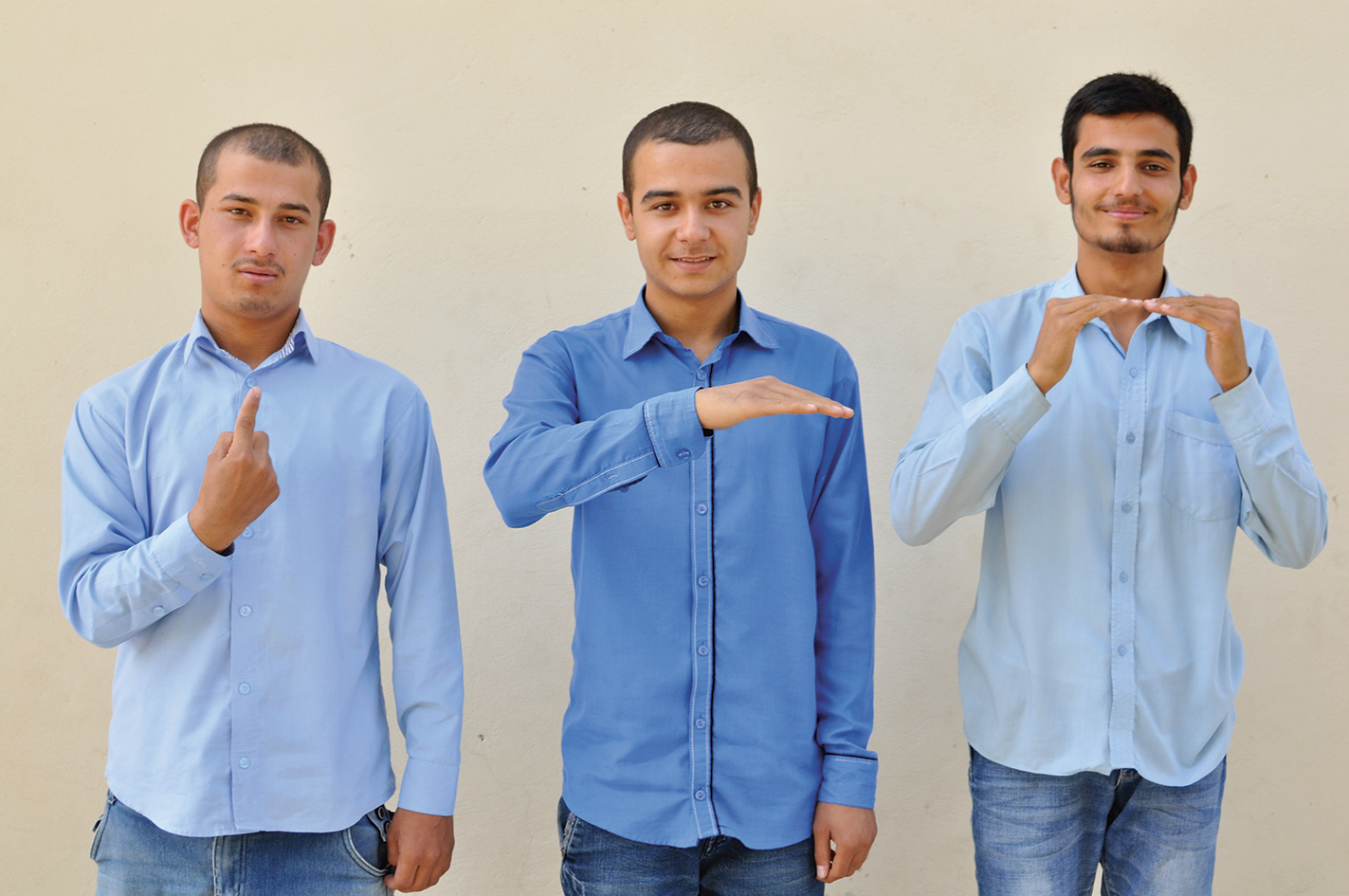“Without SCA, I would be unemployed or a thief”
Tamim, Ajmal and Jawad are three boys in Mazar-e-Sharif who like spending time on the computer or playing soccer, when they are not studying hard to get into university. They are all deaf, but that does not pose an obstacle. Thanks to SCA, they have been given the same opportunities as other children.

The four friends are smiling, kidding around and straightening up each other’ clothes. They get up against one of the school walls and sign the words “we are all equal” in sign language. Tamim, Ajmal and Jawad are all 17 years old and deaf. Their classmate Rohullah is not. He is 16 years old and has learned sign language by observing his friends.
As part of the project concerning inclusive education run by the Swedish Committee for Afghanistan, Tamim, Ajmal and Jawad attend a regular school for children without disabilities, like Rohullah. They are in tenth grade, which corresponds to the first year at a Swedish high school.
Tamim is the oldest of three sisters and two brothers. None of them is deaf. As the oldest brother, Tamim feels very protective of his siblings, especially when their parents work late or have to travel.
The school attended by Tamim is called Bakhtar School and is one of the
largest schools in the town of Mazar-e-Sharif in northern Afghanistan. More than 600 students attend the school throughout different periods of the day. Before each period, the schoolyard is often chaotic when a lot of students are on their way home at the same time as others are about to start their school day.
“Had I not received any help from SCA, I would have been unemployed, illiterate, disappointed, tired and sitting at home just like a prison, probably forced to commit crimes, like stealing or perhaps even kidnapping,” says Tamim.
Tamim was ten years old when he was found by SCA’s local social workers. They gave him the opportunity to attend SCA’s school for children with disabilities in Mazar-e-Sharif. After three years, he was ready to start attending a school with students without disabilities.
At Bakhtar School, there are quite a few children with disabilities. SCA and the school has collaborated for many years. Tamim has found two close friends in Ajmal and Jawad, who face the same challenges he is facing. They get help from Rohullah, but also from several other classmates.
“It’s our responsibility to help our hearing-impaired classmates. We are all grateful for SCA’s contributions and care for our classmates,” says Mirwais, one of Tamim’s classmates.
The teachers are also very engaged in working with the students with disabilities. The geography teacher Shafi Ghulami uses his hands, chalkboard and pointer for showing how the world is made up of different tectonic plates that rub up against each other, causing earthquakes and volcanic eruptions.
“Our deaf students are as just as smart, ambitious and keen to learn as the other students. In order to help them, we have received training in sign language and how we may assist them in different ways by using gestures and images,” says Shafi Ghulami.
In the future, Tamim wants to be a teacher so that he can give other children with disabilities the same opportunities he has been given. In order to do so, he studies as hard as he can in order to pass the entrance exam for university in a couple of years. He would also like to visit Sweden at some point in the future but says that will have to wait until he has finished university.
“Sweden is the only country that’s helped me and that was through SCA.”
TEXT: Muhammad Haron Mudaser & Salima Biglary
The program exists in three provinces
Everyone has an equal right to education. That is why SCA is working toward including children with disabilities in regular schools. In order to realize this goal, SCA offers preparatory education aimed at a subsequent integration in regular schools. This education includes learning how to read and write, but also sign languages and braille.
In order to enhance the capacity of teachers, SCA also offers courses in special education. SCA’s program for inclusive education was launched in 2010 in Mazar-e-Sharif, in the province of Balkh, but is now found in two additional provinces as well.